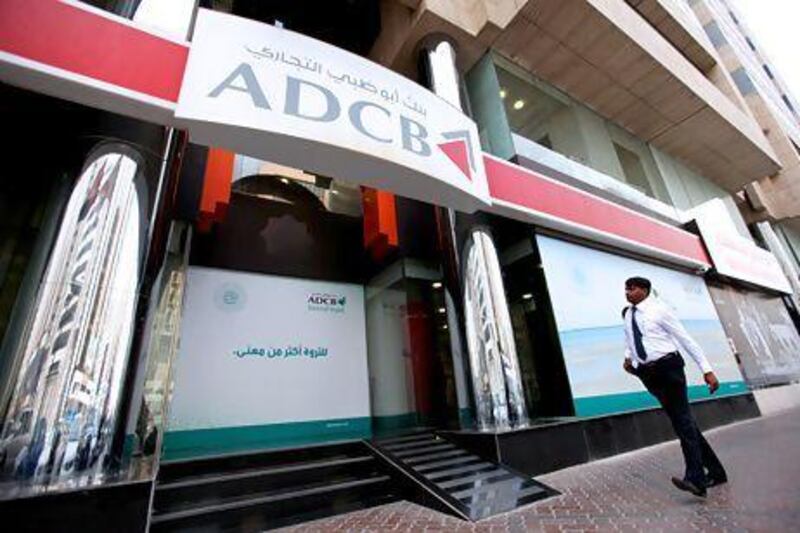Local equities have enjoyed a bull run in the first six weeks of the year, boosted by a large foreign investment base returning to trade on the Abu Dhabi Securities Exchange and the Dubai Financial Market.
In the past few trading sessions, volumes and prices appear to be losing steam. But fear not, fund managers say, the key word is consolidation - not correction.
"The markets should stabilise," said Sebastien Henin, a portfolio manager at The National Investor in Abu Dhabi. "We could see some small dips, but I am not expecting a massive drop in the market."
The surge in investor interest comes after better-than-expected corporate earnings and dividend payouts. Fourth-quarter results at Abu Dhabi Commercial Bank rose 32 per cent from a year earlier, while Emirates NBD's bottom line more than tripled in the same period.
Banking stocks have been at the fore of the rally, as the sector represents the heaviest weightings on the nation's indexes.
"There is a fundamental shift in the banking sector and real economy, and these stocks need to catch up with this reality," said Fadi Al Said, the head of investments at ING Investment Management in Dubai.
The DFM General Index has advanced 18.5 per cent so far in 2013, closing at 1,923.13 points on Friday.
The ADX General Index has risen 14.8 per cent since the start of the year, closing last week at 3,022.48 points.
The two markets are approaching the 20 per cent threshold some investors consider as marking a bull market.
The recent surge in interest comes amid a global "risk-on" environment and as lacklustre bond yields push more investors to move their money from debt to equity to leverage on lucrative equity dividends.
Globally, inflows into emerging market equity funds have exceeded inflows into bond funds in every week but one since early December, according to EPFR, a funds data company.
Last week, emerging-market equity funds took in additional money for the 22nd straight week.
Bond yields in the Arabian Gulf fell sharply last year without triggering any big shift of money into equities. The yield on Dubai's US$750 million, 7.75 per cent bond maturing in 2020 tumbled more than 3 percentage points over the year to 3.83 per cent.
Historically, the Gulf has traded at lower valuations than many other emerging market regions because geopolitical and economic risks are perceived to be higher. But with bond yields at rock-bottom levels, cheap valuations started to attract investors.
"The markets are still very cheap," said Salim Sebbata, the general manager at Mubasher Financial Services, a regional brokerage house. "ADX and DFM are coming off a low base."
Abu Dhabi's index is trading at 7.4 times earnings, well below Egypt's 9.2 times.
Dubai's index is trading 10.5 times earnings, below Saudi Arabia's gauge trading at 11.4 times. By comparison, London's FTSE 100 Index is trading at 11.6 times, while the S&P 500 Index is trading at 13.6 times in New York.
The regional investment bank EFG-Hermes estimated that off-benchmark allocations of money to Middle Eastern equities markets reached their highest level since 2009. Off-benchmark investments are those by funds that are not aiming to mimic market indexes.
"The rally in local equities is driven by multiple sources - local, regional and international inflows - because of macroeconomic improvement in the UAE," said Mr Al Said. "People are looking at the future and expecting positive developments."
In Egypt, the only bourse in the region classified as an emerging market, concerns over a weak economy and foreign reserves outflows driven by political unrest are weighing on the market.
Egypt plans to invite an IMF mission to Cairo within a week, the government said, signalling an imminent resumption of negotiations over a $4.8 billion loan.
"I won't be surprised to see Egyptians investing in assets other than equities - real estate and land would be a good hedge for inflation in Egypt," Mr Henin said.





